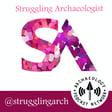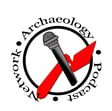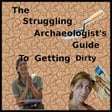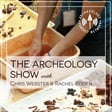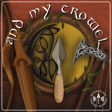
BOOM! - Episode 1
Greetings and welcome to the first ever episode of “The Struggling Archaeologist’s Guide to Getting Dirty!”
Hey there, I’m Jenny, and I’m pretty excited to introduce people to the world of archaeology. In fact, I’m so excited that I have decided to bring joy and knowledge into the lives of people everywhere by providing them with this podcast. My podcast. Sure, you’re thinking- who is this girl and why does she think she’s so special? Well folks, I’m not really that special, I’m just a regular girl with a love of the past and a microphone. I’ve also noticed that there aren’t a lot of places that people like me can go for advice and information on getting somewhere in the field while we’re still developing our academic muscles. News programs like existing podcasts and websites can often offer a great variety of news stories from around the world, but where’s the debate behind them? And where are the stories about what students and shovelbums are doing out there right now? I think I can help provide a place where anyone can get in on the story, can get their questions about how things work out there answered, and can enjoy in not only the grandeur of the greatest finds but the overlooked ones as well. I’ll have help from friends and professionals out there, and together we should start talking about getting ahead in academia- on a thesis- on a job application- or just ahead in general. I’m pretty funny, and I sing too. So there’s that.
In this introductory episode entitled “BOOM!” I introduce myself and explain why my podcast is awesome. There’s also a discussion on several news stories making waves in the archaeology world, such as the question of neanderthal cloning (I have some major doubts on this venture, though it’s not like a decade from now there will be a new sitcom called “The Neanderthals next door” or anything, come on people- it’s not happening any time soon!). There’s also something about a Roman skeleton with a calcified ovarian tumor which I promise you is NOT gross or anything (lying), and for the history and literature lovers out there (like me!) there’s a tribute to the 200th anniversary of Jane Austen’s Pride & Prejudice. Also, from the world of CRM there’s a bit about shovelbumming and my latest job down in the incredibly stinky and prickly hills of Southern New Mexico. Then I talk about other stuff and lecture you on proper tipping. So, you know, lots of really earth shattering stuff in this episode, so I recommend you check it out! I would love to hear feedback, questions, and comments atguidetogettingdirty@gmail.com
